I was born in Glyn Ce
iriog (or maybe the local hospital) in 1922 and lived in the village until 1950, when I came to Llangollen. My parents were Richard and Elizabath Ann Jones. I was one of six.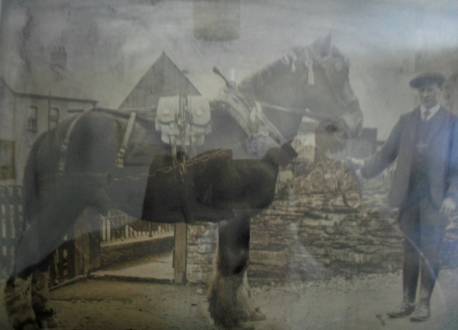
Ceriog’s father
I remember going for a paper one morning at about 6.30 to find the post-office on fire. Things were moved over to the Seion Chapel and the post office ran from there, but the Post Office Museum never reopened.
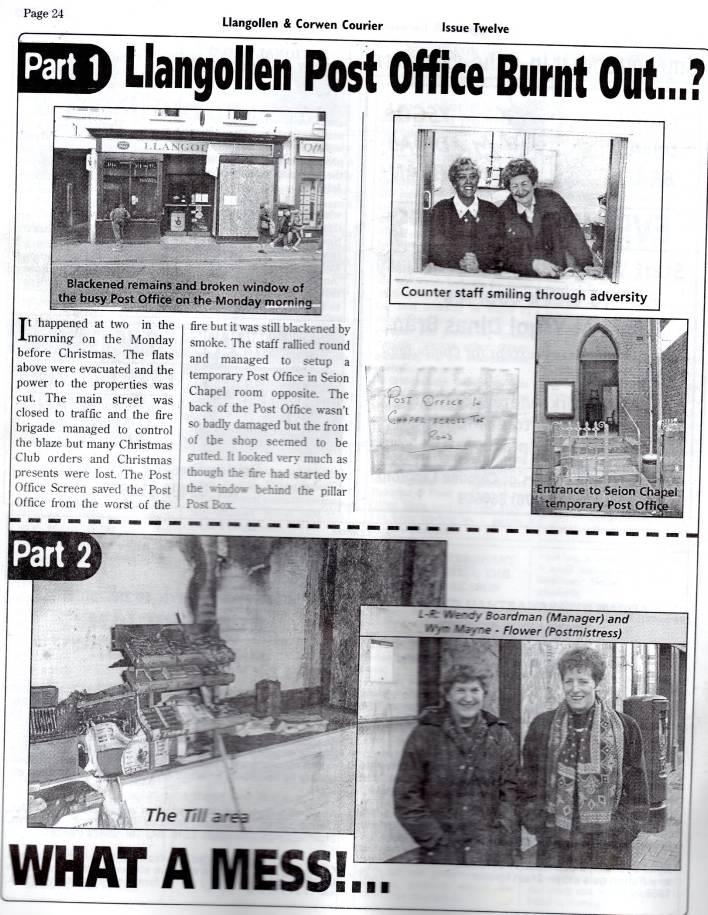
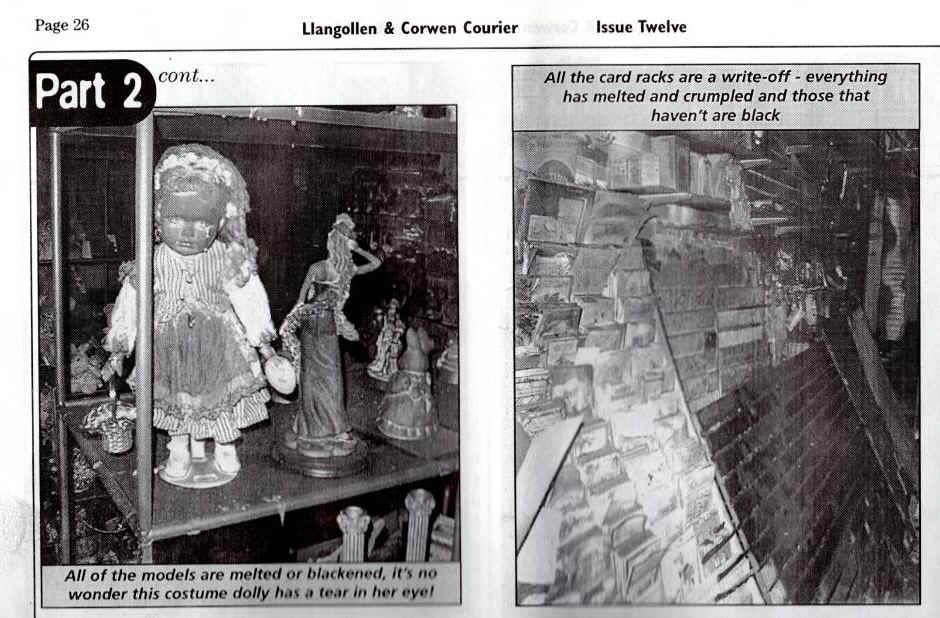
I married Doreen, nee Haywood, who came to Glyn on holiday. Courting was long distance, with her coming to stay and my visits to Birkenhead. Her parents were very kind.
I went to school in Glyn Ceiriog where there were two schools-enllish and welsh.
I remember having to go to Llanarmon to sing in 1932 as part of the 100 year anniversary of the birth of John Hughes, who took the bardic name of Ceiriog
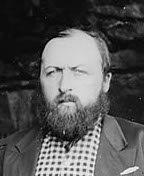
John Ceiriog Hughes (25 September 1832 – 23 April 1887), was a Welsh poet and well-known collector of Welsh folk tunes. Ceiriog was born at Penybryn farm overlooking the village of Llanarmon Dyffryn Ceiriog, in the Ceiriog Valley, He worked as a railway clerk in Manchester and London. He was employed as a station master at Caersws railway station station from 1868.
They were hard days then - no money. We used to walk to Nantyr to collect baskets of winn berries. A man used to come round. I think his name was Sagar and buy them. The money would be used to but stockings and socks. As children, we had to eat what we got. When very hungry we used to pinch a turnip out of the field and eat it raw. They tasted even better as Paunch mipe and with a rabbit, roasted or in the pot.
I left school at 14 and worked in the mill in Glyn which made woolen blankets and suiting. I was earning 5/- a week. The mill closed down and I went to work for a farmer. There was no fussiness in those days: you took a job because it was available. Every bit of income was important to the family. I later worked at the fisheries, for a builder and at Mile-end Mill as a welder. I went to Mile- End Mill from Glyn to work by bike. For a while I worked at Corwen, after the Llangollen Mill closed and went by train. In my later working years I took over as caretaker at the Town Hall. but before then, when Doreen and I were married, we moved to Chapel Street and ran a shop selling groceries- known as Loftwick’s stores. This ran until it was superceded by supermarkets. On chapel street there was Miss Lewis (fishing tackle-where the Gallery is now), Loftwicks, a plumbers, the Cross foxes, and a fish shop. On the opposite side was a paper shop (Mrs Ellis- Elbourne-?-?- closed)
Youthful evenings were spent in Glyn Ceiriog- not much time for leisure after and early start-6.30 and a long days work on the farm, milking, doing the milk round (initially, with a churn to fill jugs and later with bottles) ploughing etc, But we did play billiards and games. The days were long and you worked on the farm as long as a job needed finishing-no overtime in those days.
The walk home was often made in pitch darkness.
Market day on the farm involved a walk over the mountain to Llangollen with sheep, picking up other farmers with their livestock etc on the route.
The Glyn Ceiriog Sheep Dog Trials were a big thing in those days- a proper agricultural show with horses and cattle parading.
There were the races through the valley-the Six days trial-(motorbikes) and cycle races. These drew crowds to watch the events.
The Glyn Valley tramway was busy, carrying slate from the quarries- everything came into the valley by rail. My uncle had horses and it was his job at 7am every morning to hitch up to the trucks and take them with his horses to the incline where they would be hooked on and hawled up.
I do remember the great stir it made throughout the area when the Duke of Windsor abdicated from the throne.
In the war I worked in farming, but two brothers joined up.
It caused a lot of interest locally during war time, when a R101crashed into the sea.
I don’t remember any real food stortages in the war, but I do remember the taste of the home cured bacon. People would have a whole pig, hung in their cellars and take the meat off as required. I also remember the wonderful taste of the water drunk in cupped hands fron the stream up on Nantyr.
I remember one youthful outing, when I worked at the Mill, to the Dorothy Cinema, when I stayed in Llangollen after work to see the boxer Tommy Farr on screen. It was not on- so I walked home over the Baddie in the dark.
In the winter of 1963 it was so cold that I was out of work. I used to have to carry water from the well by the brook.
The winters were hard, with shortage of outdoor work and rain that one year fell like shards of ice, and there was the digging out of the sheep and clearing of the paths and roads to get anywhere (and then 1947).
I enjoy talking about the past and visits from family and friends.
I am proud to say that this year 2010 my cousin’s daughter Glenys Mair Roberts won a Natiopnal Eisteddfod Crown
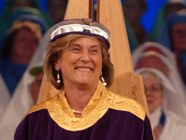
Writer Glenys Mair Glyn Roberts, from Llantrisant, today won the Blaenau Gwent and Heads of the Valleys National Eisteddfod Crown.
She was presented in front of the gathered crowd in Ebbw Vale today and was presented with her crown in a ceremony led by archdruid Jim Parc Nest.
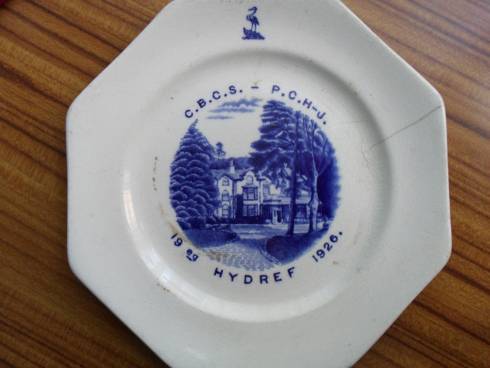
A treasured plate